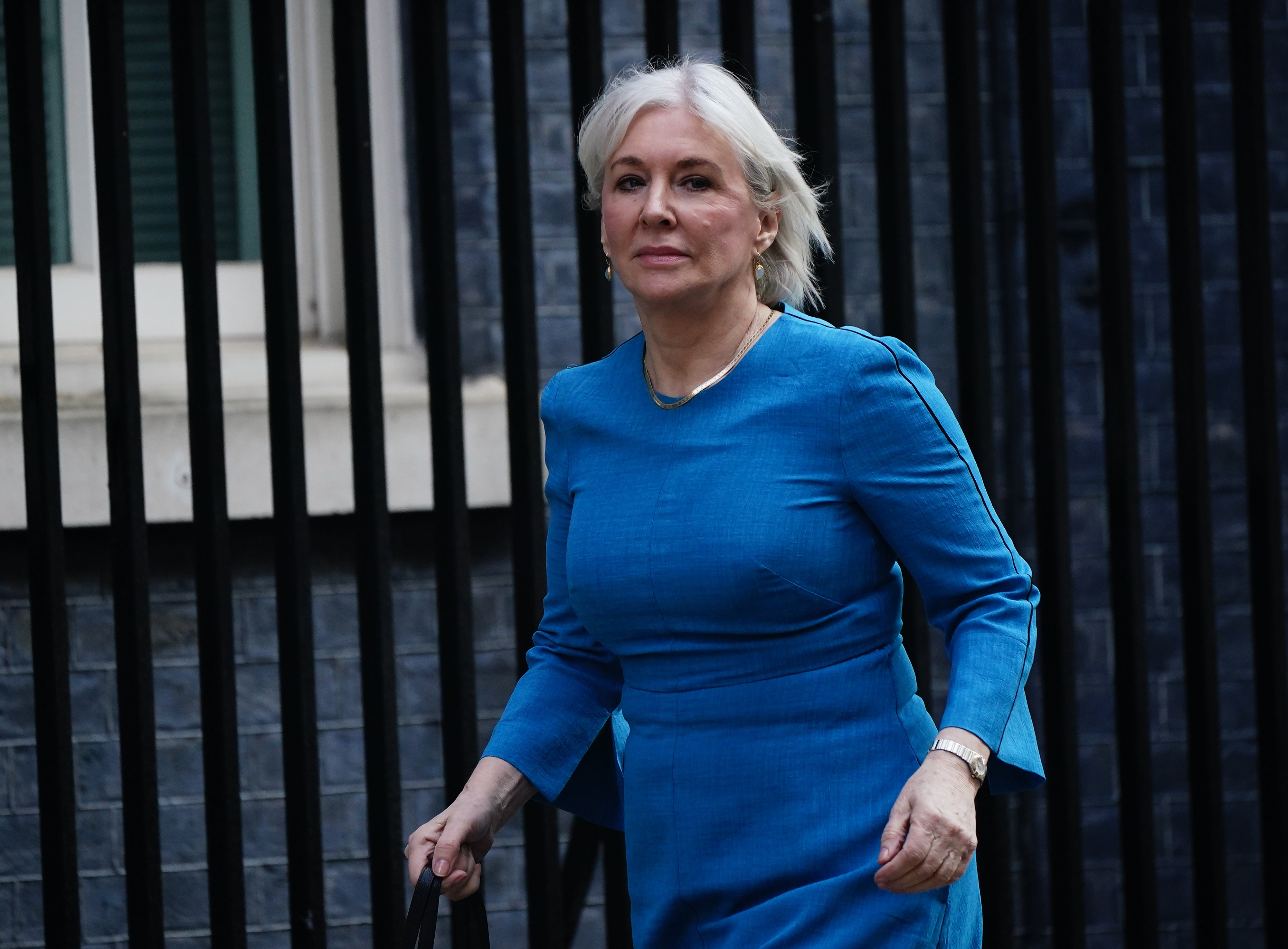Nadine Dorries: Women’s sport must be reserved for those born female
The Culture Secretary held a meeting with sports governing bodies on Tuesday.

Your support helps us to tell the story
From reproductive rights to climate change to Big Tech, The Independent is on the ground when the story is developing. Whether it's investigating the financials of Elon Musk's pro-Trump PAC or producing our latest documentary, 'The A Word', which shines a light on the American women fighting for reproductive rights, we know how important it is to parse out the facts from the messaging.
At such a critical moment in US history, we need reporters on the ground. Your donation allows us to keep sending journalists to speak to both sides of the story.
The Independent is trusted by Americans across the entire political spectrum. And unlike many other quality news outlets, we choose not to lock Americans out of our reporting and analysis with paywalls. We believe quality journalism should be available to everyone, paid for by those who can afford it.
Your support makes all the difference.Culture Secretary Nadine Dorries says UK sport must follow swimming’s lead and ensure that only athletes born female are able to enter female competitions, saying the issue had been “ducked” for too long.
FINA, swimming’s world governing body, announced on June 19 that athletes who had been through any part of male puberty would be barred from elite female competition. Instead the sport will now seek to create an ‘open’ category for transgender female competitors.
Dorries met with representatives from football, cricket, rugby, tennis, athletics and other sports on Tuesday afternoon and made it plain that in her view national governing bodies had to act, arguing it was “inherently unfair” for women and teenage girls to compete against someone who was born biologically male.
“Just met with sport governing bodies to discuss trans participation,” the Secretary of State for Digital, Culture, Media and Sport tweeted.
“This is a complex and emotionally charged issue – but it’s one that has been ducked for too long. We can’t pretend that sex doesn’t have a direct impact on a person’s athletic performance.
“Asking women and teenage girls to compete against someone who was biologically born a male is inherently unfair.
“So today I have made my position absolutely clear: I expect sporting bodies to follow the policy that competitive women’s sport must be reserved for people born of the female sex.
“We need to do this in a way that protects and shows compassion to all athletes – including the creation of open categories. But fairness in competitive sport has to take priority above all else.
“Some clear direction is long overdue – not only for athletes, but also event organisers and fans. There is evidently more to do to make sport fairer for female athletes.”
Olympic gold medal-winning diver Tom Daley says he is “furious” at FINA’s decision.
The 28-year-old, who came out as gay in 2013, told inews: “Like most queer people, anyone that’s told that they can’t compete or can’t do something they love just because of who they are, it’s not on.
“It’s something I feel really strongly about. Giving trans people the chance to share their side.”
Policies on transgender inclusion in elite-level sport are generally set by a sport’s international federation, as in the case of FINA.
Track and field currently cap an athlete’s testosterone levels in order for them to compete in female events, but Lord Coe, the president of World Athletics, hinted at tougher rules as he welcomed FINA’s stance and insisted his job was to “protect the integrity of women’s sport”.
Football’s world governing body FIFA said last week it was reviewing its policies.
On a domestic level, the Football Association and British Cycling are reviewing their transgender policies with regards to grassroots competition.
Governing bodies are carrying out their own research on the impact of athletes’ sex at birth and gender reassignment on athletic performance. UK Sport and Sport England will co-ordinate the process of reporting back on progress later in the summer.
Guidance published by the UK’s sports councils in September 2021 made it clear that it was not always possible to balance inclusion with fairness where sex can have an impact on sporting results.
FINA’s ruling came after Lia Thomas became the first transgender swimmer to win a major US national college title in March. She will now be ineligible to compete in elite women’s events.